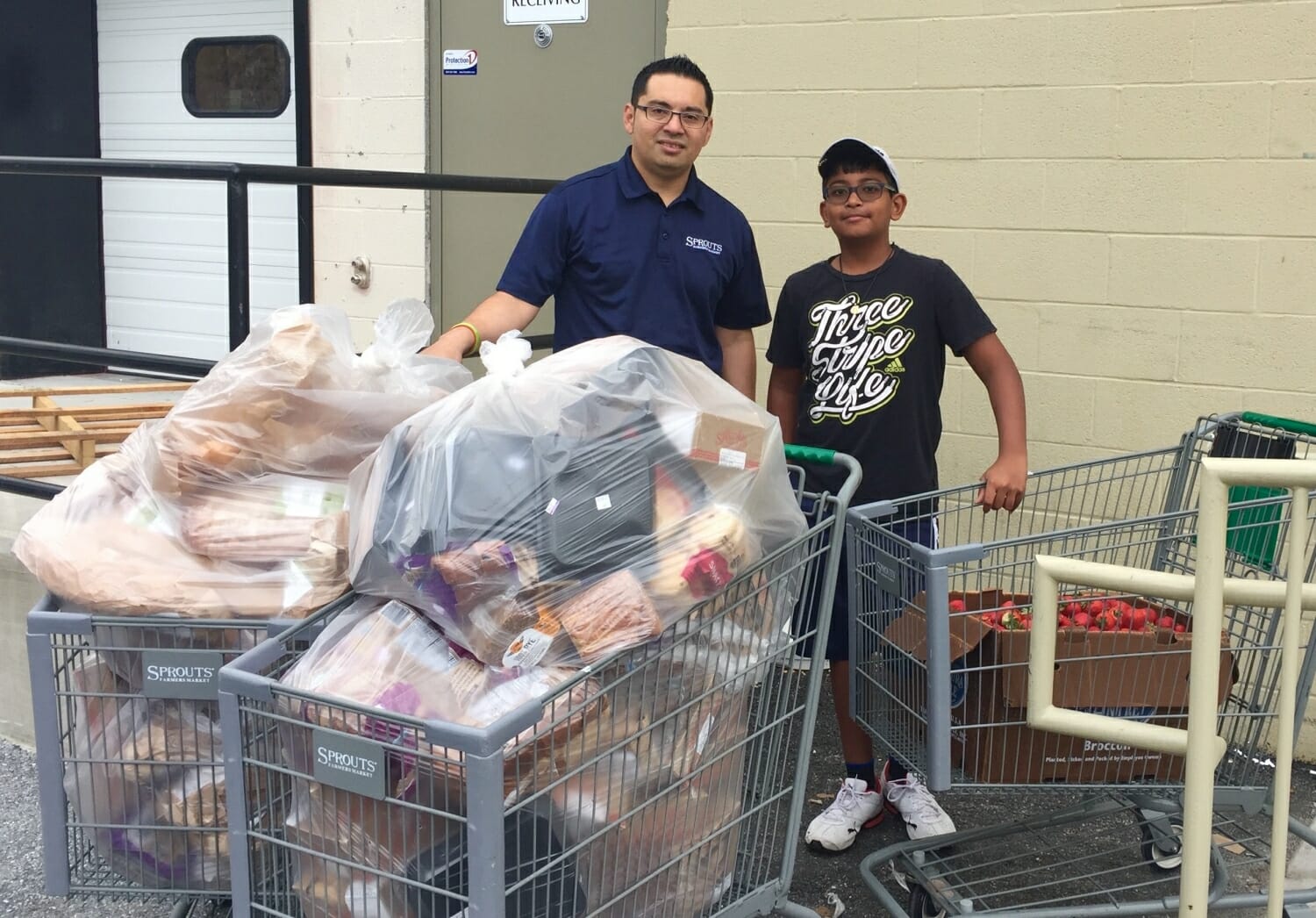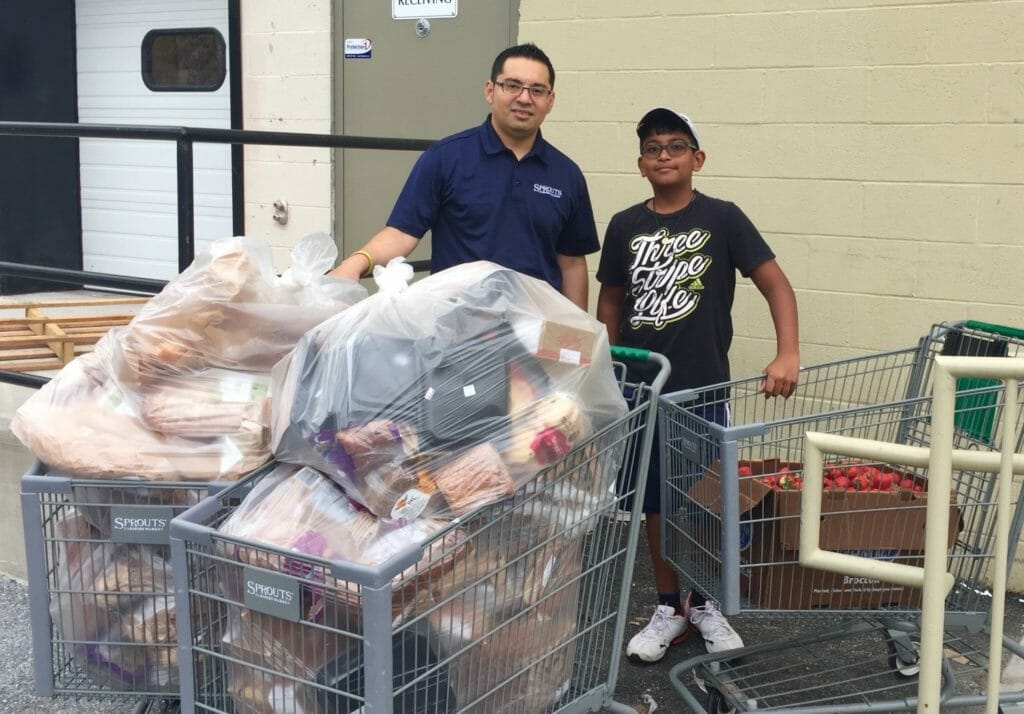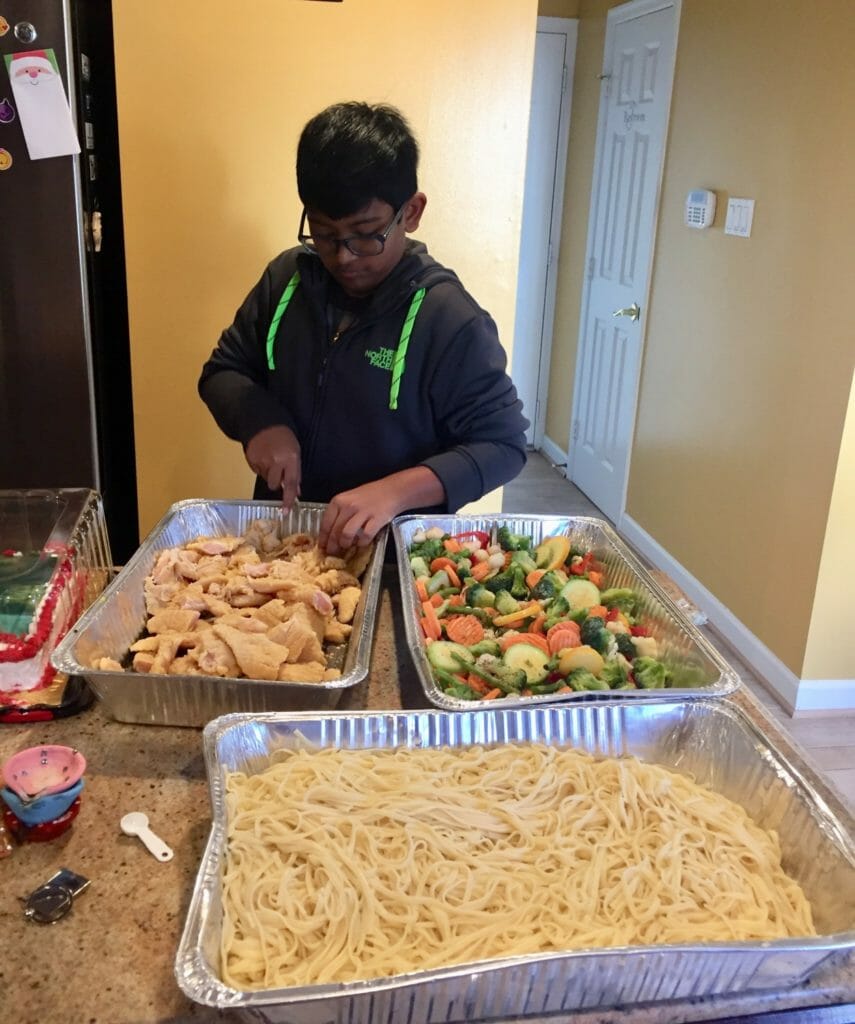Maryland Preteen Spends Life Dedicating Time to Serving Others


Neev’s lifetime of service has, quite literally, lasted almost his entire lifetime. When he was four-years-old, he donated a five dollar bill he found on the ground to a homeless man he saw nearby. From that moment on, he knew he wanted to give everything he could to others — whether that meant donating his entire piggy bank to various charities, raising thousands of dollars for victims of the 2015 Nepal earthquake, or collecting and delivering donated food and other items to those helped by Project PLASE.
Due to spending his entire childhood serving others, Neev is today’s Daily Point of Light honoree. Points of Light spoke with Neev and Prakash about how this dedicated preteen serves Maryland’s homeless community.
Describe what you do to volunteer.
Neev: Right now, I go to Project PLASE every Sunday to feed the homeless. We have restaurants give us food once or twice a month or volunteers will bring their own food and we’ll serve them, all the homeless people.
It started eight years ago in the metro. What happened is, I found five dollars on the floor and it felt like the luckiest day ever. And then I saw one man asking for a little money to get something to eat. And then I decided that this five dollars would mean more to him than it would mean to me. I gave him it. Then when my dad saw it, he decided to start taking me to … another homeless shelter. And then from that we went onwards, and that’s when I started to go to Georgetown and then after that I started going to Project PLASE. It started with my dad. He got in contact with the [Project PLASE] director, and he said how this shelter needed more stuff because they weren’t getting much food and their kitchen burned down so they needed help with food.
Can you talk about Friends of Sparsh?
Neev: Friends of Sparsh is the nonprofit we made and what we are hoping to do is raise more and more money to buy things for the homeless shelter. Right now, we are in the process of saving up money to buy a food truck so that everyday we can bring food to Project PLASE.
Prakash: So we founded this organization about three months ago. We’ve been involved in the homeless community in the Baltimore area for the past eight years. Project PLASE is a place where they put a lot of people from the street into permanent housing. So what happens with permanent housing, they need a lot of stuff. So me and Neev, we put in our Facebook page [what we need], we collect stuff for the people for when they move to the permanent house and we provide them with furniture or clothes or whatever they need. The people from Project PLASE, they call us and they say, hey, there’s a family that needs, for example, some clothes, utensils, whatever they need. So we try to gather all the stuff and get it for them. They have two shelters. One of the shelters, they don’t have very good funds, so now every Sunday we provide food in the shelter. We contacted local restaurants and our friends, people celebrating anniversaries, birthdays, and they bring the food. So every Sunday we provide them food. Next year we are to organize this nonprofit in a better way. We are raising funds for the food truck or maybe to help them to build a kitchen in the shelter so people can come and cook the food. This whole project [Friends of Sparsh] was established with simply me and [Neev] together. We are planning to raise 50,000 dollars, so we will have enough money to bring the food every Sunday, plus we can help them basically with different activities or what they’re going to need. Sometimes they call us and say this family doesn’t have air conditioning. We go buy that for them. Sometimes they call us and say this family needs a bed. So we want to have enough money so we can fulfill all of the families’ needs. Plus we want to start trying to reach more people. The past two years we’ve been helping with Project PLASE — we have 15 families with about 40 kids, we fulfill their wish by buying their Christmas gifts and we get Santa Claus, magic shows, all these things. Plus every birthday and holidays, the last eight years, Neev’s been celebrating in the centers. He goes there with me and celebrates in the shelter. He collects money all year round.

What inspires you to volunteer?
Neev: My inspiration right now is the realization — when you realize there are others out there who really do need more than you do right now. I guess that’s what’s inspiring me to carry on and the dedication.
Why do you think it’s important for others to give back?
Prakash: We are middle-upper class people and a lot of times we don’t see the under belly of society. There are so many things that are happening and we try to avoid it, we don’t look at it, we just ignore it. I work in Baltimore city where I see many families struggling … We can’t ignore them. We try to ignore them, but these people are also the foundation of our society, the basics of society. We don’t know their story when we go to Project PLASE. We [as a society] just judge them, we just think, ‘Oh, they’re dirty, they must be there because of their own fault.’ But sometimes circumstances are there and we don’t know their story. So now when we talk to them, we meet with them, we know what’s happening in their life.
Neev: Adding to what my dad said, we judge them immediately. When you get to talk to them, you know they share many similarities and likes with you and dislikes. For example, I met some people who shared the same interest in football team and many other different variety of sports and food options.
Prakash: So basically, they’re like us but they’re in difficult situations. It’s very important that we have to give back to the community and not ignore it. That’s what I’m trying to teach my son. He’s developing this philosophy and he has a lot of things he doesn’t understand. And for me, what’s important is, when we tell stories to kids, they just listen. But when they look at it, they believe it, they feel it. So now when we take so many kids with us, they see, they feel it, they believe it. They know there are homeless there, but when they meet a homeless person or a person struggling, they feel the pain right away. Seeing is believing, you know? It makes more of an impact.
What’s been the most rewarding part of your work?
Neev: The most rewarding part is to see everyone smile and have a good time.
Are there any future partnerships, programs, or events that you are excited about?
Prakash: The two shelters have about 60 residents, and those kids don’t get any gifts on Christmas morning. We have collected like 60 gifts for them, with the volunteers writing notes for them. We’re going to the shelter on Christmas morning to give them the notes and tell them that there are people who care about them. We already have gifts and everything ready. … This is a shelter where residents stay for a longer time. We feel more connected to them because we see the same people every Sunday. You start connecting to these people, you starting knowing their life. You start knowing about them. That makes a difference. At another shelter, every time there’s new people who come and they go away so there is no connection. But in this shelter … we know many of them by name … We get to look at their life more closely than anybody else. We have founded this nonprofit and hopefully we will get to do much better work. We have big projects to do.
Neev: I want them to take from it how they can help. Normally when they think about helping the homeless, they think about giving them some money. But there’s a different strategy to it. What I want them to do is, make something called care packages, at least 30 to 40 care packages. What the care packages should consist of are normal everyday needs — toothpaste, toothbrushes, granola bars, water, anything that you would need. And then keep them in your car and whenever you see a homeless person or less fortunate, feel free to give one of them to them.
When you give a care package or when you’re volunteering on Sundays, how do the people you’re helping react?
Neev: They have a big smile on their face. They always say thank you so much. You can tell that deep down they’re very happy and excited that someone is actually looking out for them.
Do you want to make a difference in your community like Neev? Visit All For Good for local volunteer opportunities.
Post written by Morganne Mallon.
